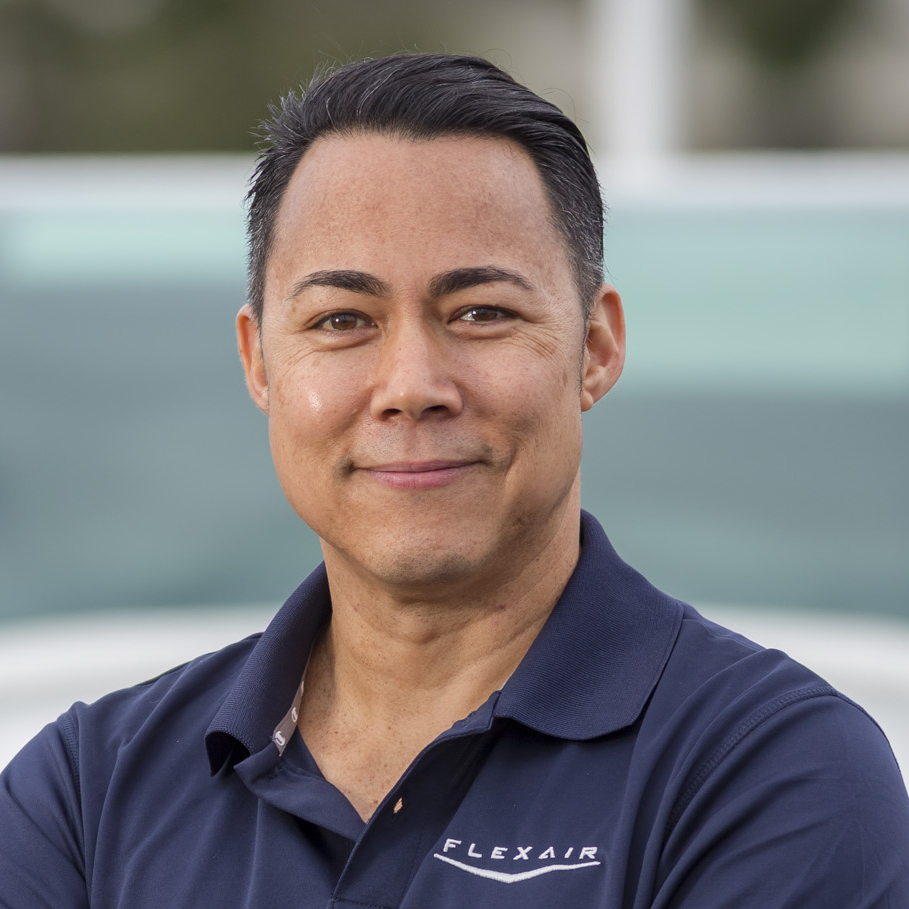Securing a position as a pilot within the aviation industry requires more than just flying skills and a passion for the skies. An airline pilot interview is a critical step in your career path, where you demonstrate not only your technical proficiency but also your fit within an airline's culture and operational needs. Preparing effectively for this interview can make the difference between being offered your dream job and having to try again. This comprehensive guide aims to demystify the process, offering expert tips and actionable advice to help you ace your airline pilot interview.
Airline Interview Preparation Overview
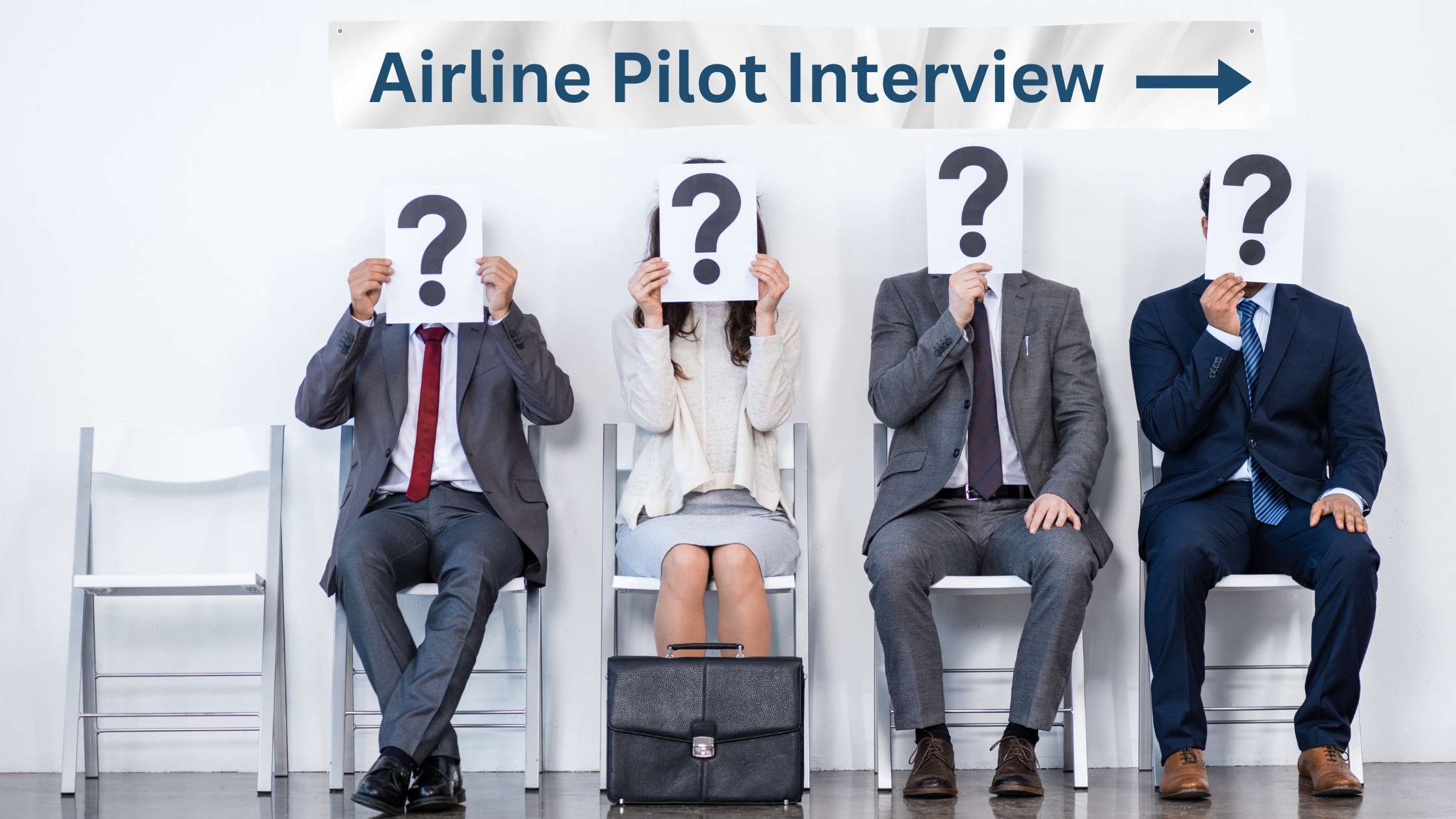
Here's a brief summary of what this guide to Airline Pilot Interviews covers:
-
Interview Preparation Essentials:
- Emphasize flying skills and cultural fit within the airline during the interview.
- Dress professionally and arrive early to make a strong first impression.
- Prepare for a mix of common and technical questions related to both flying and interpersonal skills.
-
Types of Interview Questions:
- Common Questions: Focus on passion for aviation, handling stress, and hypothetical situational reactions.
- Technical Questions: Cover aviation principles, aircraft systems, and emergency procedures; include simulation training for practical demonstration.
- Competency Questions: Assess alignment with airline's values through past experiences showcasing leadership, teamwork, and decision-making.
-
Study and Preparation Tips:
- Use study guides and resources specific to the airline and broader aviation topics.
- Engage with simulation software and attend simulator sessions to demonstrate readiness for technical challenges.
- Keep updated with current aviation regulations, technologies, and industry news to answer interview questions confidently.
-
Interview Strategy:
- Bring stories and examples that demonstrate problem-solving and critical thinking skills.
- Prepare to discuss professional development plans and how you stay updated with industry trends.
- Familiarize yourself with the specific aircraft and operational protocols of the airline.
-
Follow-Up After Interview:
- Send a thank-you email within 24 hours, referencing specific parts of the interview to reemphasize interest.
- Maintain professional and polite communication post-interview to keep your candidacy top of mind.
-
Beyond Technical Skills:
- Highlight interpersonal skills essential for teamwork and leadership within the flight crew.
- Demonstrate understanding of customer service and how it integrates into daily responsibilities.
-
Simulator Training Importance:
- Use simulator training to anticipate interview scenarios and display technical competency.
- Discuss simulator experiences during the interview to illustrate problem-solving and adaptability.
Top Airline Pilot Interview Questions Demystified
Common Interview Questions for Aspiring Pilots
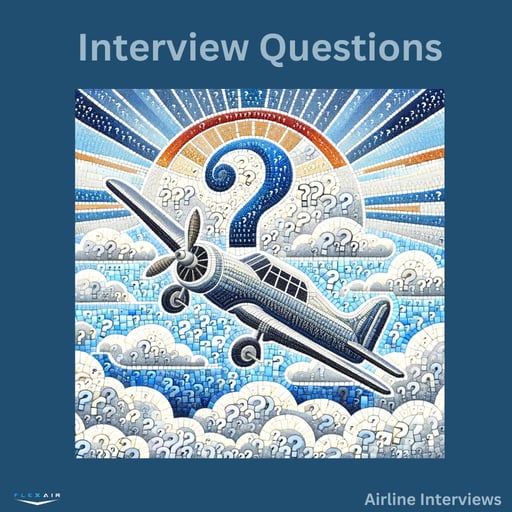 During the airline pilot interview, candidates are often faced with a mix of common interview questions that assess both their passion for aviation and their understanding of what the role entails. These questions generally probe into why the individual wishes to become a pilot, their career aspirations within the airline industry, and how they handle the pressures associated with the job. Many aspiring pilots are also asked about their reaction to hypothetical situations, such as dealing with a difficult passenger or how they would manage a sudden change in flight conditions. Answering these questions effectively requires a blend of personal insight and professional knowledge, showcasing to the interviewer that you are not only technically proficient but also possess the soft skills necessary for the role.
During the airline pilot interview, candidates are often faced with a mix of common interview questions that assess both their passion for aviation and their understanding of what the role entails. These questions generally probe into why the individual wishes to become a pilot, their career aspirations within the airline industry, and how they handle the pressures associated with the job. Many aspiring pilots are also asked about their reaction to hypothetical situations, such as dealing with a difficult passenger or how they would manage a sudden change in flight conditions. Answering these questions effectively requires a blend of personal insight and professional knowledge, showcasing to the interviewer that you are not only technically proficient but also possess the soft skills necessary for the role.
For Navy and Marine Corps pilots, Spitfire Elite is our preferred interview preparation service. Recognized for their tailored coaching, Spitfire Elite ensures that transitioning military pilots are exceptionally well-prepared for civilian aviation roles.
Expanding on the theme of common interview questions, it's crucial for candidates to prepare stories that highlight their competencies and experiences relevant to every airline, showcasing how their job is to make sure they comply with high standards of reliability and safety. It is important to remember that making a strong first impression begins with your appearance and punctuality. Wearing a well-fitted suit, arriving early, and presenting yourself professionally reflects your seriousness towards the role and respect for the interview process.
General Questions for Airline Pilot Interviews
- What motivates you to pursue a career as a pilot?
- How did you develop an interest in aviation?
- Alternative career options if you can't pursue piloting?
- Next steps if you are not selected for this pilot position?
- Describe the responsibilities of a modern airline pilot.
- Essential skills needed for today's airline pilots.
- What is a typical workday like for an airline pilot?
Technical Questions Revealed: What You Need to Know
The technical portion of the airline pilot interview often intimidates candidates due to its detailed questioning on aviation principles, aircraft systems, and emergency procedures. This segment is designed to test the pilot's knowledge gained from flight school, flight training, and real-world flying experience, assessing if they may use this knowledge effectively as part of a crew in every airline’s operation. Expect questions about navigation, meteorology, and the mechanics of flight, which assess your ability to safely pilot an aircraft and also test your mental math skills, a critical component of a professional pilot’s job to make sure safety standards are upheld. The interviewer, often a seasoned pilot or flight instructor themselves, might also present scenarios requiring quick but calculated decisions, examining your problem-solving skills under pressure.
To enhance your preparation for the technical questions asked in an airline interview, engaging with simulation software or attending simulator sessions can be incredibly beneficial. This practical approach allows you to demonstrate your flying competence and decision-making process in a controlled environment, making you better equipped for the technical portion of the interview and showcasing your abilities to perform essential safety checks and operational decisions as would be expected from every crew member.
Sample Technical Interview Questions for Airline Pilots:
- Explain the different Instrument Landing System (ILS) approaches.
- What is a VOR and how does it assist in navigation?
- What are considered critical phases of flight in aviation?
For pilots preferring to prepare independently, Aviation Interviews offers an extensive question bank that is highly regarded in the industry. This resource is invaluable for familiarizing yourself with potential interview questions and refining your responses.
Competency Questions: Demonstrating Your Fit for the Airline
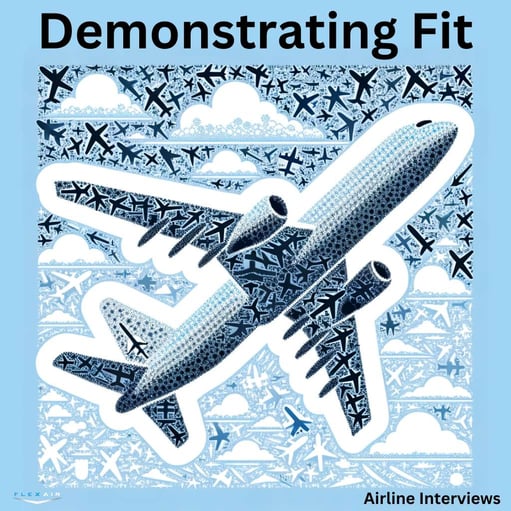 Competency-based questions are a critical part of the airline pilot interview, designed to evaluate whether a candidate's professional attributes and personal qualities align with the airline's standards and ethos. These questions often revolve around past experiences that demonstrate leadership, teamwork, effective communication, and decision-making skills. For example, you might be asked how you handled a conflict within a team or resolved a critical issue during a flight. The aim here is to provide concrete examples that highlight your ability to perform under stress, work harmoniously with a diverse crew, including flight attendants, and ensure the safety and satisfaction of passengers.
Competency-based questions are a critical part of the airline pilot interview, designed to evaluate whether a candidate's professional attributes and personal qualities align with the airline's standards and ethos. These questions often revolve around past experiences that demonstrate leadership, teamwork, effective communication, and decision-making skills. For example, you might be asked how you handled a conflict within a team or resolved a critical issue during a flight. The aim here is to provide concrete examples that highlight your ability to perform under stress, work harmoniously with a diverse crew, including flight attendants, and ensure the safety and satisfaction of passengers.
Diving deeper into competency questions, they may also explore your commitment to the aviation industry and your career trajectory. Being asked to outline your professional development plan or discuss how you stay updated with industry trends reveals your long-term interest in and dedication to your career as a pilot and may influence your performance during a technical interview. It is crucial to relate your experiences and aspirations directly to the role and the airline, demonstrating a clear understanding of how your skills and competencies make you a perfect fit for the airline's culture and objectives.
Competency-Based Interview Questions for Pilots
- Can you provide an example demonstrating your leadership skills?
- Discuss a time when you effectively led a team in the aviation industry.
- Describe an instance where you were an effective team member.
- Discuss a situation where you had to manage a disagreement.
- How have you handled conflicts in a professional setting?
- Share an experience where you had to make a challenging decision quickly.
Preparing for Success: Essential Study Guides and Resources
Must-Have Study Guides for Every Pilot Interview Candidate
Study guides are indispensable tools for anyone preparing for an airline pilot interview. These resources provide a comprehensive overview of the technical and theoretical knowledge required, from the basics of aerodynamics to the complexities of airline operations, essential for any airline professional. Additionally, guides tailored specifically to the interview process can offer unique insights into what recruiters are looking for in candidates, including common interview questions, tips on presenting your flight experience, and how to effectively communicate your competencies. Earmarking valuable time to study these guides can significantly increase your chances of a successful airline interview, a key step in the hiring process for aspiring first officers and crew members.
Beyond generic aviation study guides, it's beneficial to seek out materials that cater specifically to the airline where you're interviewing. Understanding the airline's fleet, routes, and operational challenges can provide a competitive edge, allowing you to tailor your responses to demonstrate knowledge relevant to the airline. Engaging with online forums and communities of aviation professionals can also uncover valuable advice and firsthand experiences of the interview process at various airlines, offering tips to help candidates get the job. Additionally, simulation practice, particularly for the technical skills assessment portion of the interview, becomes another crucial resource, demonstrating how professional pilots will be prepared for every part of the interview process. Using simulators to practice scenarios you may face can lead to better performance during a technical, making these guides and resources an essential part of your preparation strategy.
As part of Flex Air's commitment to providing comprehensive career development resources, Flex Air includes a Raven Careers networking course in all our career pilot programs and for all our Certified Flight Instructors (CFIs) as a fringe benefit. Raven Careers offers expert guidance in building professional connections within the aviation industry, ensuring our pilots are well-prepared to advance their careers.
Relevant Aviation Knowledge: Enhancing Your Interview Readiness
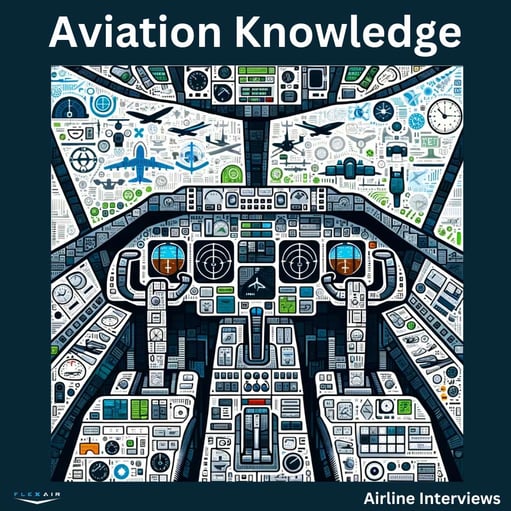 Aviation is a constantly evolving field, with new technologies, regulations, and operational methodologies continually emerging. To successfully navigate an airline pilot interview, candidates must demonstrate not only a solid foundation in aviation principles but also an up-to-date awareness of the industry's current state, which every airline looks for during their hiring process. This includes knowledge of the latest aviation safety practices, understanding global aviation regulations, and being aware of the airline's recent developments and challenges. Engaging with reputable aviation news sources, attending industry seminars, and participating in professional development courses can enrich a candidate's knowledge base and answer interview questions more confidently and accurately.
Aviation is a constantly evolving field, with new technologies, regulations, and operational methodologies continually emerging. To successfully navigate an airline pilot interview, candidates must demonstrate not only a solid foundation in aviation principles but also an up-to-date awareness of the industry's current state, which every airline looks for during their hiring process. This includes knowledge of the latest aviation safety practices, understanding global aviation regulations, and being aware of the airline's recent developments and challenges. Engaging with reputable aviation news sources, attending industry seminars, and participating in professional development courses can enrich a candidate's knowledge base and answer interview questions more confidently and accurately.
In addition to keeping abreast of current industry news, potential pilots should familiarize themselves with the specific aircraft types they might be flying for the airline. Knowledge about the technical aspects of these aircraft, such as performance characteristics, cockpit layouts, and emergency procedures, is frequently explored during the interview process to assess a candidate's reliability in various operational scenarios. This type of information often comes from the airline's own manuals and resources, which might be available to candidates preparing for interviews. Combining this aircraft-specific knowledge with a broader understanding of aviation trends and issues demonstrates a well-rounded and in-depth preparedness that is highly attractive to airline recruiters. Investing time in expanding your aviation knowledge in these areas can significantly enhance your interview performance, making you stand out as a well-informed and passionate candidate.
The Role of Simulation in Acing Your Pilot Interview
How Simulator Experience Can Give You an Edge in the Interview
Simulator training is widely recognized as a vital component of pilot training, offering a realistic platform for practicing and refining flying skills without the risks associated with real-life flying conditions. When it comes to the airline pilot interview, having simulator experience can be a significant advantage. This practical exposure demonstrates to the interviewer your proficiency in handling typical and atypical flying scenarios, your adaptability to different aircraft types, and your capacity to maintain composure under pressure. Simulator training, especially on models relevant to the airline's fleet, showcases your initiative in preparing for the role and your commitment to ensuring the highest standards of safety and efficiency in your flying.
The benefits of simulator training extend beyond just sharpening flying skills; they also include familiarizing candidates with the interview's technical skills assessment portion. Engaging in simulator sessions that mimic potential interview scenarios allows you to anticipate the challenges you might face and develop strategies for addressing them effectively. This preparatory step can boost your confidence and facilitate a more composed and professional demeanor during the interview, significantly improving your performance. Furthermore, discussing your simulator experiences during the interview can provide concrete examples of your problem-solving abilities, your aptitude for learning and adapting to new technologies, and your overall readiness for the demands of an airline pilot position.
Simulator Scenarios You Might Face During the Interview
During the airline pilot interview, candidates might be subjected to a simulator evaluation to assess their flying capabilities and decision-making under pressure. This portion of the interview typically involves scenarios that test a range of skills, from basic aircraft handling and navigation to managing in-flight emergencies and critical decision-making. For instance, you may be asked to execute a take-off with engine failure, navigate through severe weather conditions, or handle a sudden decompression event. These simulations are designed to reveal your practical knowledge of aviation procedures, your ability to apply theoretical knowledge in real-world situations, and your composure in emergency scenarios. Prior exposure to such simulations enhances your readiness and demonstrates your competence in handling the unexpected challenges that can arise during flight.
Preparing for these simulation scenarios requires a strategic approach, combining thorough study of aircraft operating manuals and procedures with hands-on practice in simulators, a testament to the comprehensive training that professional pilots will be prepared to demonstrate. Engaging with flight instructors, mentors, or seasoned airline professionals who can provide feedback on your performance in simulated conditions can also be invaluable for acing a technical interview. They can offer insights into areas for improvement and tips for handling specific challenges commonly encountered during airline interviews, helping candidates refine their approach to the technical interview or test. Moreover, familiarizing yourself with the airline's standard operating procedures and emergency protocols, if accessible, can tailor your simulation practice more closely to the expectations of the interviewer. This level of preparedness helps not only in demonstrating your technical proficiency and decision-making skills but also in conveying a deep understanding of the complexities and responsibilities associated with being an airline pilot.
Scenario-Based Questions for Pilot Interviews
- How would you handle a situation if you suspected the Captain was under the influence before a flight?
- Strategies for managing crew conflicts during a flight.
- Steps to take when aircraft systems fail during a critical flight phase.
Tips from Aviation Insiders: Making a Strong Impression on Your Interviewer
Insightful Tips from Experienced Pilots and Aviation Recruiters
Seeking advice from those who have successfully navigated the airline pilot interview process can provide a wealth of invaluable insights. Experienced pilots and aviation recruiters often emphasize the importance of demonstrating a genuine passion for flying and a committed interest in the aviation industry. They suggest that candidates should come prepared with thoughtful questions about the airline, showing a proactive approach to learning and a deep interest in becoming part of the airline's team. Additionally, showcasing your adaptability, leadership qualities, and ability to function effectively under stress are key traits that recruiters look for. Such attributes can be subtly woven into your responses during the interview, painting a comprehensive picture of your suitability for the pilot role.
Beyond technical competence and theoretical knowledge, aviation insiders also stress the significance of soft skills in making a positive impression on recruiters, especially for roles that closely interact with flight attendants and other airline professionals. Effective communication, teamwork, and problem-solving are highly valued in the aviation industry, where the safety and satisfaction of passengers are paramount. Demonstrating examples of these skills from your past experiences, whether in aviation or other fields, can significantly bolster your standing among other candidates, showing your readiness to ensure crew and passenger safety, a prime focus during every airline’s hiring process. Furthermore, insiders advise paying close attention to the non-verbal aspects of the interview, such as body language, attire, and overall demeanor, which contribute substantially to the interviewer's first impression. Ensuring a professional appearance and conducting yourself confidently, yet humbly, can set a positive tone for the interaction, highlighting your readiness for the prestigious and demanding role of an airline pilot.
Experience and Preference Questions for Airline Pilot Candidates
- Discuss the biggest challenges you've faced in your flying career.
- What are your long-term professional goals in aviation?
- Reasons for wanting to join our airline as a pilot.
- What aspects of being a pilot do you find most rewarding?
The Importance of First Impressions: What Recruiters Look For
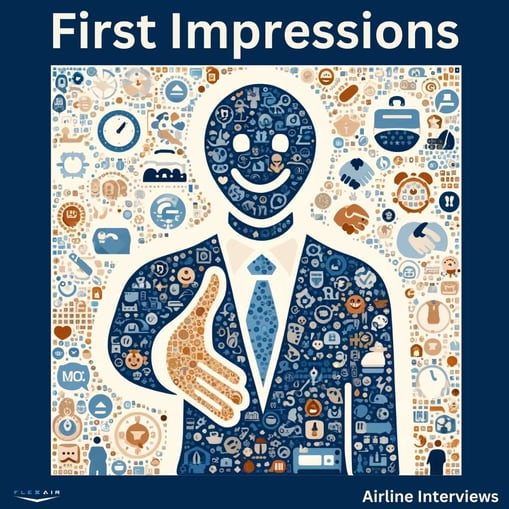 First impressions are crucial in any interview setting, but they hold particular significance in the airline industry, where the safety and comfort of passengers rest on the shoulders of its pilots. Recruiters are not only assessing your technical skills and aviation knowledge but also evaluating your professionalism, confidence, and ability to communicate effectively. Presenting yourself professionally, from your attire to your punctuality and demeanor, sends a clear message about your seriousness towards the role and your respect for the interviewer and the airline. Moreover, your ability to articulate your thoughts clearly, listen attentively, and engage respectfully with the interviewer are qualities that recruiters highly value. These elements contribute to a strong first impression, indicating to the recruiter your potential as a reliable and competent airline pilot.
First impressions are crucial in any interview setting, but they hold particular significance in the airline industry, where the safety and comfort of passengers rest on the shoulders of its pilots. Recruiters are not only assessing your technical skills and aviation knowledge but also evaluating your professionalism, confidence, and ability to communicate effectively. Presenting yourself professionally, from your attire to your punctuality and demeanor, sends a clear message about your seriousness towards the role and your respect for the interviewer and the airline. Moreover, your ability to articulate your thoughts clearly, listen attentively, and engage respectfully with the interviewer are qualities that recruiters highly value. These elements contribute to a strong first impression, indicating to the recruiter your potential as a reliable and competent airline pilot.
In addition to professional presentation, recruiters also look for signs of a candidate's capacity for continuous learning and adaptability. The aviation field is dynamic, with constant technological advancements and changing regulations, hence, an eagerness to learn and adapt is essential. Highlighting your commitment to professional development, through continuous education or pursuit of additional certifications, can demonstrate your dedication to maintaining high standards of aviation excellence. Recruiters also highly regard candidates who display a clear understanding of the airline's culture and values, showing that they have not only researched the company but also envision themselves as part of the team. Ultimately, making a strong first impression involves a delicate balance of showcasing your technical qualifications, soft skills, and a genuine enthusiasm for the airline and the aviation industry at large.
Follow-Up Strategies After Your Interview: Keeping the Connection
Following up after the airline pilot interview is a critical step that can further distinguish you as a thoughtful, motivated airline professional. A well-crafted thank-you email, sent within 24 hours of the interview, reiterates your appreciation for the opportunity and allows you to reemphasize your interest in the position and the airline. In this correspondence, it's beneficial to reference specific parts of the conversation that stood out, demonstrating your attentiveness and engagement throughout the interview process. Additionally, if there were any questions you felt could have been answered more comprehensively, this follow-up provides a chance to clarify or add to your earlier responses, further demonstrating your reliability and thorough understanding necessary for the job. Maintaining a polite and professional tone, while expressing your enthusiasm for the role, can leave a lasting positive impression on the recruiter, keeping you top of mind as they make their hiring decisions.
Beyond the initial thank-you message, it's important to find a balance in maintaining communication without overwhelming the hiring manager or recruiter. An appropriate follow-up schedule might include checking in via email every few weeks, if the decision-making process is extended. During this time, sharing any relevant updates on your qualifications, such as new certifications, flight training accomplishments or ASA certifications, can keep your application fresh in the minds of the interview panel. However, patience and professionalism are key; respecting the interviewer's time and process reflects well on your understanding of the industry's demands and your potential fit within the airline's culture. By carefully navigating the post-interview period with thoughtful communication strategies, you can solidify your status as a strong candidate eagerly awaiting the opportunity to contribute to the airline's success.
Meeting the Requirements: From Flight Hours to Technical Skills
The 1500 Flight Hours Requirement: Navigating Your Path to Eligibility
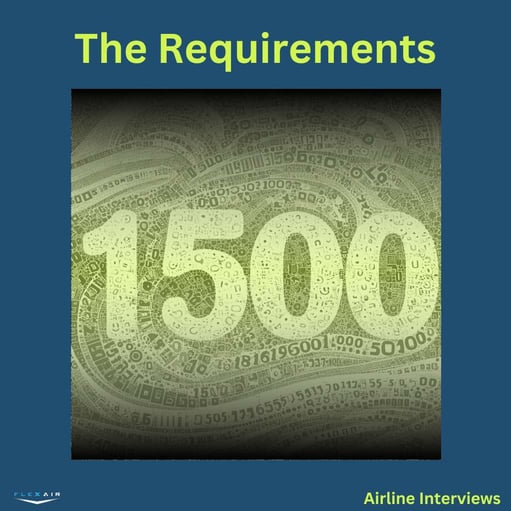 The requirement of 1500 flight hours is a significant milestone for aspiring airline pilots and a critical eligibility criterion for most major airlines. This benchmark, set to ensure that pilots have sufficient flying experience, requires strategic planning and dedication to achieve. Gaining these hours typically involves a combination of instruction, charter flights, and personal flying, all of which are crucial parts of the hiring process for professional pilots. Many candidates opt to become flight instructors themselves, which not only helps accumulate flight hours but also hones their skills in communication, leadership, and aviation safety. It's crucial for candidates to keep detailed records of their flight hours, ensuring that all requirements are met and can be easily verified by the airline's recruitment team. Navigating this requirement successfully showcases your commitment to a career in aviation and your readiness to handle the responsibilities of an airline pilot.
The requirement of 1500 flight hours is a significant milestone for aspiring airline pilots and a critical eligibility criterion for most major airlines. This benchmark, set to ensure that pilots have sufficient flying experience, requires strategic planning and dedication to achieve. Gaining these hours typically involves a combination of instruction, charter flights, and personal flying, all of which are crucial parts of the hiring process for professional pilots. Many candidates opt to become flight instructors themselves, which not only helps accumulate flight hours but also hones their skills in communication, leadership, and aviation safety. It's crucial for candidates to keep detailed records of their flight hours, ensuring that all requirements are met and can be easily verified by the airline's recruitment team. Navigating this requirement successfully showcases your commitment to a career in aviation and your readiness to handle the responsibilities of an airline pilot.
While the 1500 flight hours serve as a baseline for technical proficiency and experience, aspiring pilots should also focus on the quality of their flying hours. Diverse flying experiences, such as navigating complex weather conditions, operating various aircraft types, and managing long-haul flights, can significantly enhance your appeal as a candidate. Airlines look for pilots who not only meet the flight hour requirement but also demonstrate a breadth of experience, a proactive approach to learning, skill development, and a capacity for high performance during a technical interview. Additionally, engaging in professional development opportunities, such as advanced certifications or specialized training programs, can further distinguish your application. These efforts illustrate not only a dedication to achieving the flight hours milestone but also a commitment to excellence and continuous improvement in your aviation career.
Technical Skills Assessment: Preparing for the Simulator Portion of the Interview
The simulator portion of the airline pilot interview is a critical assessment of a candidate's technical skills and ability to perform under pressure. This evaluation often includes scenarios that pilots might encounter during flights, such as emergency situations, technical malfunctions, and adverse weather conditions. Successful navigation of these scenarios requires a blend of technical knowledge, practical skill, and critical thinking. Preparing for this assessment involves thorough study of aviation principles, familiarity with the specific aircraft you'll be operating, and, most importantly, significant practice in a flight simulator. It's essential to approach the simulator with a calm and focused mindset, demonstrating to the interviewer your competence in handling complex flying situations with poise and professionalism.
Your preparation for the technical skills assessment should also include a review of the airline's standard operating procedures and emergency protocols, if available. Understanding the airline's specific practices can tailor your simulator performance to reflect the protocols and decision-making processes expected by your potential employer, underscoring the importance of preparation for every part of the interview. Moreover, discussing your approach to the simulator scenarios during the interview provides an opportunity to highlight your problem-solving abilities and your dedication to aviation safety. Support from experienced instructors or mentors, who can offer constructive feedback on your simulator performance, can be invaluable in refining your skills and building your confidence. By investing time and effort in preparing for the simulator portion of the interview, you demonstrate not only your technical prowess but also your serious commitment to meeting the rigorous standards of the airline industry.
Beyond Flying: Other Competencies Relevant to the Airline Industry
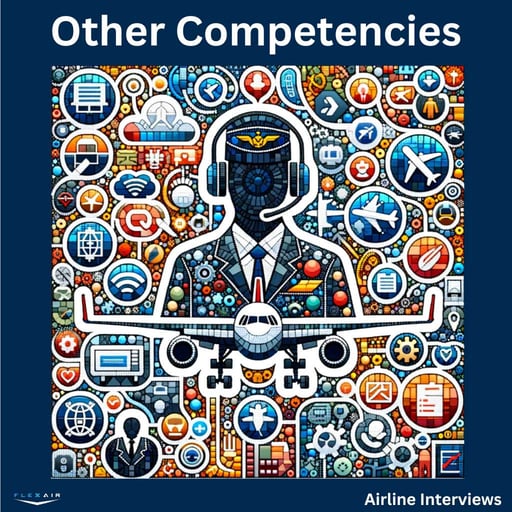 The role of an airline pilot extends far beyond the cockpit, encompassing a wide range of skills and competencies that are vital for success in the airline industry. Communication, leadership, teamwork, and problem-solving are among the key attributes that airlines seek in their pilots. These skills are not only essential for the safe and efficient operation of flights but also for contributing to a positive and collaborative work environment. For instance, effective communication ensures clear interaction with air traffic control, cabin crew, and passengers, while strong leadership and teamwork abilities enable pilots to manage their crew and handle unexpected situations with confidence. Cultivating these soft skills, through professional development courses or real-world experience, enhances your overall profile as a candidate well-suited for the demands of an airline pilot role.
The role of an airline pilot extends far beyond the cockpit, encompassing a wide range of skills and competencies that are vital for success in the airline industry. Communication, leadership, teamwork, and problem-solving are among the key attributes that airlines seek in their pilots. These skills are not only essential for the safe and efficient operation of flights but also for contributing to a positive and collaborative work environment. For instance, effective communication ensures clear interaction with air traffic control, cabin crew, and passengers, while strong leadership and teamwork abilities enable pilots to manage their crew and handle unexpected situations with confidence. Cultivating these soft skills, through professional development courses or real-world experience, enhances your overall profile as a candidate well-suited for the demands of an airline pilot role.
In addition to interpersonal competencies, airlines also value pilots with a strong understanding of customer service and the ability to contribute to the airline's success. Knowledge of current industry challenges and trends, such as sustainability and technological advancements, plays a crucial role in shaping a pilot's approach to his or her duties. Keeping up-to-date with these developments through continuous learning and engagement with the aviation community can provide you with the insights needed to perform effectively and adapt to changing conditions. Demonstrating a commitment to maintaining a high level of professional and technical knowledge is essential for aligning with the airline's values and ensuring the safety and satisfaction of every passenger.

